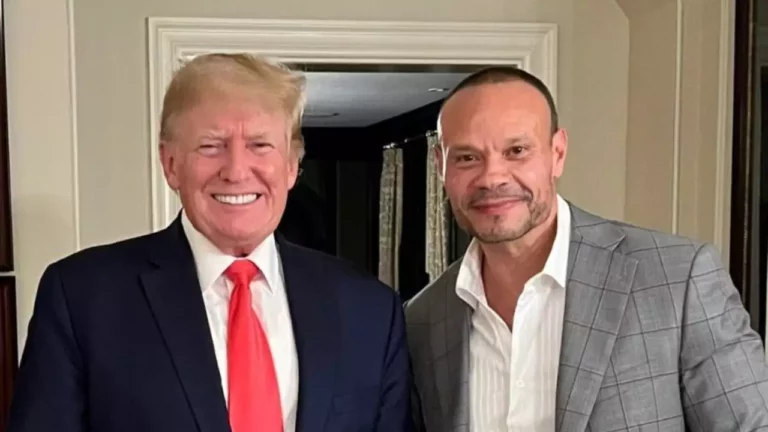 Sen. Marco Rubio of Florida and Ohio Gov. John Kasich face the biggest tests of their Republican presidential bids Tuesday as five large states vote on what could prove to be this year’s most consequential day of primary balloting.
Sen. Marco Rubio of Florida and Ohio Gov. John Kasich face the biggest tests of their Republican presidential bids Tuesday as five large states vote on what could prove to be this year’s most consequential day of primary balloting.
Billionaire Donald Trump could essentially extinguish the White House bids of both men. Scoring victories in their home states could make his anger-fueled bid unstoppable and potentially alter the party’s composition for years to come.
On the Democratic side, Hillary Clinton is seeking to steady her campaign after a Michigan primary loss on March 8 gave Vermont Senator Bernie Sanders fresh oxygen. The two rivals may face a longer nomination path than the Republicans, the opposite of predictions made just nine months ago.
While Sanders could manage to win a couple of states on Tuesday, he’ll need to do so by large margins to affect the race’s final outcome. Despite his impressive win in Michigan, Clinton increased her overall lead by 24 delegates last Tuesday, and Sanders now trails by 655 delegates when superdelegates are factored in.
The voting is the first tangible measure of Trump’s support since a melee broke out Friday night in Chicago after the New York real estate mogul abruptly cancelled a rally because of protests inside and outside the arena. The incident further heightened unease among establishment Republicans desperately seeking a way to stop him.
“This will be a decisive day,” said Ryan Williams, a Republican strategist who served as a spokesperson for 2012 Republican nominee Mitt Romney. “The only avenue to stop Trump at this point is to deny him the 1,237 delegates he needs to win the nomination outright and force a contested convention.”
Williams is skeptical that a convention battle would knock Trump from the party’s top slot. “Even if there is a contested convention, Trump’s rabid supporters would likely dominate the majority of delegate spots and make it hard for other candidates to pick up the votes needed to win the nomination after the first ballot,” he said.
Kasich appeared better positioned than Rubio to survive the day. A Quinnipiac University poll released Monday showed Kasich and Trump tied at 38 percent in Ohio, while the school’s survey in Florida showed Trump with a huge lead over Rubio, 46 percent to 22 percent.
Should Kasich and Rubio emerge from Tuesday’s contests without a clear path to winning the nomination, they should drop out, Senator Ted Cruz of Texas argued Monday.
“This race right now is effectively a two-candidate race,” he told reporters before a rally in Decatur, Illinois. “The other two candidates have no viable path to 1,237 delegates. The laws of mathematics have foreclosed their path and I would suggest that any candidate after tomorrow night ought to look at the results and if they have no viable path to the nomination they should consider coming together and uniting.”
While state wins will be closely watched, just as important are the number of delegates the candidates will secure. Florida and Ohio have greater importance there, too, because they award delegates on a winner-take-all basis on the Republican side.
Other states voting Tuesday include Illinois, Missouri, and North Carolina. The five states will allocate more delegates than on any other day on the nomination calendar except for Super Tuesday two weeks ago.
The Republican voting could go a long way in determining whether Trump will cruise to the nomination, or whether the party is headed for a potentially chaotic national convention in Cleveland in July.
“The beauty would be if we win Florida and we win Ohio we can go and attack Hillary, no more attacking each other,” Trump said Monday at a stop in Tampa. “The Republican Party has to come together.”
During a Monday evening rally in Ohio, the front-runner expressed confidence in his position in Florida, Illinois, Ohio, and Missouri. “This is a place I wanted to be,” he said at an airport hangar in Youngstown, Ohio. “This is going to do it. Ohio is going to make America great again. Kasich cannot make America great again.”
Adding color to the campaign trail Monday was former Alaska governor Sarah Palin, who campaigned for Trump and mocked the protesters who continue to interrupt the businessman’s rallies.
“What we don’t have time for is all that petty punk-ass little thuggery stuff that’s been going on with these quote-unquote protestors, who are doing nothing but wasting your time and trying to take away your First Amendment rights,” she said.
Perhaps not realizing that her microphone was still live to reporters following her, Clinton commented Monday evening to MSNBC’s Chris Matthews about just how much media coverage Trump gets.
“Man, you guys cannot stop talking about him,” she said. “He is a dangerous presence and, you know, it’s just like candy by the bushel.”
Even if the number of candidates shrinks following Tuesday’s voting, Trump could be hard to stop, in part because of the sped-up nomination calendar that has allowed to him to already amass a substantial delegate lead.
Heading into Tuesday’s balloting, Trump had 460 of the 1,237 delegates needed to win, according to Associated Press estimates. Cruz had 370, followed by Rubio at 163 and Kasich at 63.
As he did on Super Tuesday, Trump has called a news conference for 9 p.m. at his Mar-A-Lago Club in Palm Beach, Florida. Most Florida polls close at 7 p.m., while some of those in the state’s panhandle close at 8 p.m. In Ohio, the other most closely watched state, polls close at 7:30 p.m.
Rubio and Kasich have both outlined campaign schedules beyond Tuesday’s voting, although Kasich has said he’ll drop out of the race if he doesn’t win Ohio. Rubio has vowed to keep fighting, although his donor network will dry up without a Florida win.
In Illinois, Trump led with 34 percent of likely Republican primary voters backing him, a Wall Street Journal/NBC News/Marist poll released Sunday showed. He was followed by Cruz at 25 percent, Kasich at 21 percent and Rubio at 16 percent.
Kasich picked up a boost Monday in establishment Republican support from Romney, who made two stops with him in Ohio. The joint appearances came just 11 days after the former Massachusetts governor gave a speech labeling Trump untrustworthy a boon to Democrats seeking the White House.
“I came here to make it real clear that all of America is watching what Ohio does,” Romney said as he stood with Kasich Monday evening in a high school gymnasium in Westerville, the governor’s hometown in suburban Columbus.
As for the Democrats, the Wall Street Journal/NBC News/Marist polling found Clinton with large leads in Florida and Ohio, while Illinois was more evenly divided between her and Sanders.
Clinton, who was born in Chicago, could be hurt in the Land of Lincoln by her longstanding ties to embattled Chicago Mayor Rahm Emanuel. Sanders and his campaign have repeatedly reminded voters of their longstanding relationship.
A former White House adviser to President Bill Clinton, Emanuel has faced criticism for his handling of Chicago police shootings, a heightened murder rate this year, cuts to city schools, and his handling of budget and pension problems. His standing has been especially damaged among black voters.
Ahead of the voting, Clinton has 1,231 of the 2,383 delegates needed to win on the Democratic side when superdelegates are included. Sanders is at 576.
In Ohio, Sanders has been following a similar strategy that he used to defy Clinton’s double-digit polling leads in Michigan to win an upset there, including hammering her about jobs lost by “disastrous” trade deals she’s supported.
“When it came down whether you stand with corporate America, the people who wrote these agreements, or whether you stand with the working people of this country, I proudly stood with the workers,” Sanders said at a Monday rally in Youngstown, Ohio. “Secretary Clinton stood with the big money interests.”
Michigan exit polls showed Sanders won about 60 percent of the vote among those who said that international trade cost jobs in the U.S. Ohio has lost about a third of its manufacturing jobs since December 1999, federal data show, and top elected Democrats in the Buckeye State have long blamed trade deals for contributing to that decline.
Sen. Sherrod Brown of Ohio, a Clinton supporter and one of the most outspoken congressional opponents of trade agreements and the impact on manufacturing jobs, said she’s doing more in the campaign than just railing against bad trade deals.
“She really is the only one to offer a real agenda on manufacturing and trade,” Brown said in an interview. “I’m just saying to people they should trust Hillary on this, and I do.”
(c) 2016, Bloomberg · John McCormick










